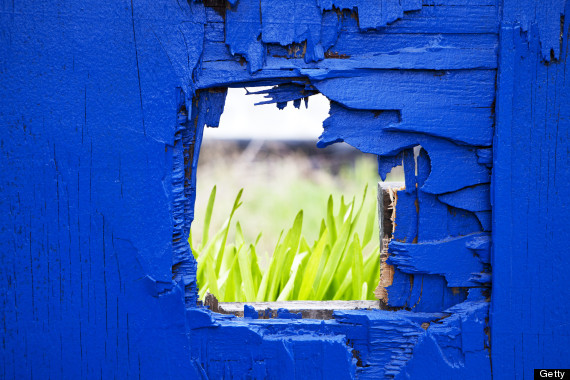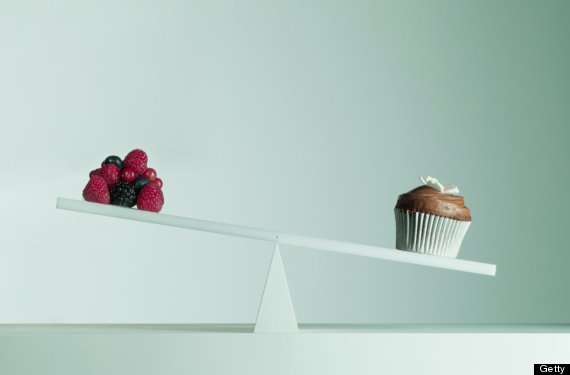
Universally feared and loathed by any writer who's taken a Fiction 101 class, cliches are, by definition, phrases so overused that they've become virtually meaningless. We tend to dismiss these groan-inducing turns of phrase as hackneyed and outdated, and often for good reason.
But while the value of many of the most cliched proverbs and idioms is undeniably questionable ("Familiarity breeds contempt" and "No pain, no gain," for starters), others have stood the test of time because they do reveal certain universal truths about human nature.
Here are nine pieces of time-worn folk wisdom that can still tell us something important about who we are.
"People in glass houses shouldn't throw stones."

We've all used (or at least heard) the "people in glass houses" idiom to describe someone who criticizes others for faults that they themselves possess. We may call it hypocrisy, but it's actually a common defense mechanism: What we reject in others is precisely what we reject in ourselves. It's what life coach Sharon Lamm calls "You spot it, you got it" syndrome.
The cliche is also supported by Freudian psychoanalysis. In 1890, Freud first outlined his theory of psychological projection, which suggests that we unconsciously reject our own "unacceptable" habits and behaviors by ascribing them to people and objects outside of ourselves.
"Look not to the faults of others, nor to their omissions and commissions," the Buddha once advised. "But rather look to your own acts, to what you have done and left undone."
"Laughter is the best medicine."

The healing powers of laughter are no joke. Small studies have linked laughter with lower stress levels, reduced blood sugar levels in those with diabetes and improved sleep quality.
Regularly cracking up can even help you to live longer. In a 2008 WebMD survey of 100 centenarians, laughter was the third-most important aspect of healthy aging: 88 percent of those who lived past the age of 100 said laughter and having a sense of humor were "very important" to aging well.
"The early bird catches the worm."

Although there are many cases of wildly successful night owls, research has linked rising early with success and positive personality traits. One study found that college students who identified as morning people had significantly higher average GPAs than those who liked to stay up late (3.5 vs. 2.5), and a Harvard biologist found that early risers are more likely to have proactive personality traits, Forbes reports. Many of the world's most influential CEOs say that they wake up by 6 a.m. (which we wouldn't necessarily recommend, unless you're hitting the hay by 10 p.m.), proving that, as Benjamin Franklin famously said, "Early to bed and early to rise, makes a man healthy, wealthy, and wise."
"The grass is always greener on the other side of the fence."

The cautionary "grass is always greener" proverb may be the most time-worn of all cliches, and for good reason. Part of the human experience -- and a universal cause of unhappiness -- is the idealization and desire for what we can't have. Sometimes we want things for the sole reason that we don't already have them, and once we do, we may not even want them any more.
But research says appreciating what you already have could make you happier. Scientists have linked an attitude of thankfulness and gratitude with better health and well-being.
"Old habits die hard."

Aristotle famously said, "We are what we repeatedly do. Excellence, then, is not an act but a habit." It's true: Most of us have an extraordinarily difficult time trying to change our habits or create new ones. And research backs that up.
“If you do something over and over, and dopamine is there when you’re doing it, that strengthens the habit even more. When you’re not doing those things, dopamine creates the craving to do it again,” University of Texas neurobiologist Dr. Russell Poldrack tells the National Institutes of Health. “This explains why some people crave drugs, even if the drug no longer makes them feel particularly good once they take it.”
"A picture is worth a thousand words."

Images may in fact be more powerful than words. Images are easier for most people to remember -- psychologists have found that pictures are recalled more easily than words on recognition tests -- and an estimated 65 percent of the population are visual learners, meaning that they process information best with their eyes (which could be an image or written text). A single image has the power to encompass a complex idea or theme, like Picasso's Guernica (pictured above), which made one of the most powerful political statements of World War II, without using any words at all.
The power of images is particularly evident in advertising: A study published earlier this year in the journal PLOS One found that when it comes to anti-smoking ads, images are more effective than words alone in warning people about the dangers of smoking.
"A watched pot never boils."

Psychologically speaking, waiting makes our experience of time slow down, which means when you're standing in line at the airport or waiting for a tardy friend to meet you for dinner, the minutes seem to drag on. In other words, it feels like the watched pot will never boil.
"Occupied time (walking to baggage claim) feels shorter than unoccupied time (standing at the carousel)," Alex Stone wrote in a 2012 New York Times article, "Why Waiting in Line is Torture." "Research on queuing has shown that, on average, people overestimate how long they’ve waited in a line by about 36 percent."
"Beauty is in the eye of the beholder."

Since the ancient Greeks, philosophers have argued over the nature of beauty. They've generally come to the conclusion that our experience of beauty is subjective -- and there's no scientific standard to determine what qualities are inherently "beautiful." Although cognitive scientists have pinpointed certain female facial features that we tend to deem more attractive (largely having to do with symmetry and ratios), beauty is still something that, in most cases, can't be agreed upon.
Look no further than shifting cultural beauty standards through history, which have changed drastically from the "Rubenesque" ideal of the 17th century to the Twiggy figure of the 1960s.
"When the going gets tough, the tough get going."

This classic proverb points toward the power of psychological resilience. In the face of challenges, resilient (or "tough") people rise up -- no matter how many times they've fallen down in the past -- to face life's difficulties with courage and conviction. And the more often people rise to challenges, the tougher they become.
As Norman E. Rosenthal, author of The Gift Of Adversity, puts it, "Hardship toughens us, deepens our understanding of life and of ourselves and, in the end, leaves us with hard-earned wisdom."
